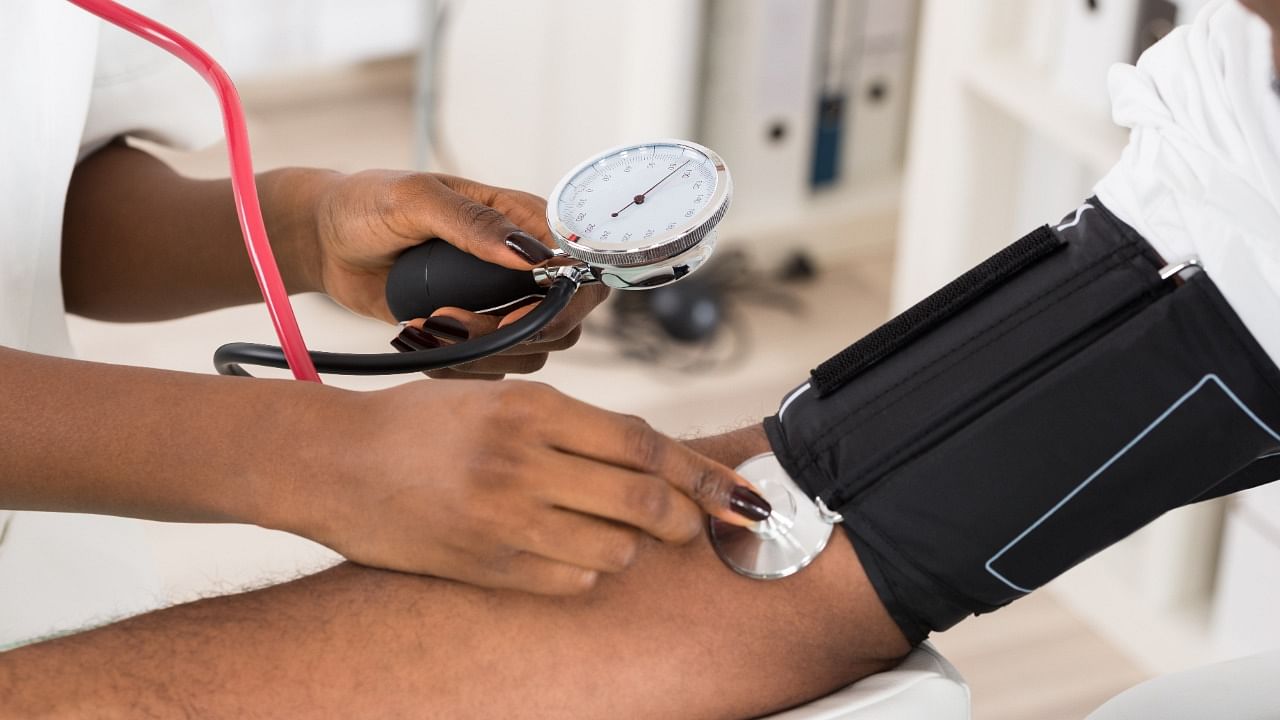
Hypertension is a widespread medical condition in India, and its prevalence is rising. Regular home monitoring of blood pressure (with a standard calibrated device) is easy and improves diagnosis. This can help rule out white-coat hypertension— high blood pressure measured in a doctor’s office and a normal reading at home, improve compliance to drug therapy and lead to better control of blood pressure. Most patients who are diagnosed with hypertension will need drug therapy. However, correcting dietary aberrations, lack of activity and incorporating other therapeutic lifestyle changes are fundamentals in the prevention and treatment of hypertension. Adopting effective lifestyle changes may delay or even prevent the need for drug therapy in those who fall under the category “grade I hypertension” (i.e. Systolic Blood Pressure (SBP) between 140-159 mm Hg or Diastolic Blood Pressure (DBP) between 90-99 mm Hg). Drug therapy should not be delayed in patients who have hypertension-mediated organ damage or high cardiovascular risk.
Excessive dietary salt consumption is associated with an increased prevalence of hypertension. The WHO recommends that adults consume less than 5g (one small teaspoon) of salt per day. Studies have shown that the average salt consumption in India is more than twice as high. Reducing dietary salt consumption by approximately 4.4 gm of salt per day has been shown to reduce SBP by 5.4 mm Hg and DBP by 2.8 mm Hg in hypertensives. This effect is more significant in older patients, diabetics and those with chronic kidney disease (CKD) or metabolic syndrome. We believe that a gradual decrease in salt used for cooking is more likely to lead to a sustained reduction in salt consumption rather than an abrupt change. Also, beware of the myth that “only foods that taste salty have high salt content.” Other ingredients like sugar can often mask the taste of salt (e.g cakes or cookies).
A healthy balanced diet is an essential part of the treatment of hypertension. The two dietary patterns found to have the most significant impact on lowering blood pressure are the DASH diet (Dietary Approaches to Stop Hypertension) and the Lacto-Ovo vegetarian diet. The DASH diet is rich in fruits, vegetables, legumes and low-fat dairy products and is low in snacks, sweets, meats and saturated and total fat. The Lacto-Ovo vegetarian diet incorporates eggs and dairy products as protein sources. These two dietary patterns have been shown to lower SBP by 5.5 mm Hg. The Mediterranean diet also has been shown to improve cardiovascular outcomes in general; however, it did not have a comparable BP-lowering effect. Consumption of green or black tea may be associated with a slight decrease in BP. Sugar-sweetened soft drinks have been associated with metabolic syndrome and diabetes and should be avoided. For those who smoke, stopping it must be a priority. Moderation of alcohol consumption may also be beneficial for cardiovascular health. Hypertensive men who drink alcohol should limit consumption to 14 units per week and women to 8 units per week (1 unit equals 125 ml of wine or 250 ml of beer).
Regular aerobic physical activity is beneficial for both the prevention and treatment of hypertension. Studies indicate that regular exercise can lower SBP by 3.5 mm Hg and DBP by 2.5, approximately. Hypertensive individuals should participate in at least 30 minutes of moderate-intensity dynamic aerobic exercise such as walking, jogging, cycling and swimming.
Excessive weight gain and obesity are associated with hypertension. Meta-analyses indicate that an average weight loss of 5.1 kg may be associated with a reduction in SBP of 4.4 mm Hg and DBP of 3.6 mm Hg. Weight loss also improves the efficacy of antihypertensive medications and reduces cardiovascular risk.
Therapeutic lifestyle changes are essential in preventing and treating hypertension and must go hand-in-hand with drug therapy.
(The writers are assistant professors at departments of cardiology. Dr Rao at KMC Manipal, Karnataka and Dr Dhanse at MGM Medical College, Maharashtra)